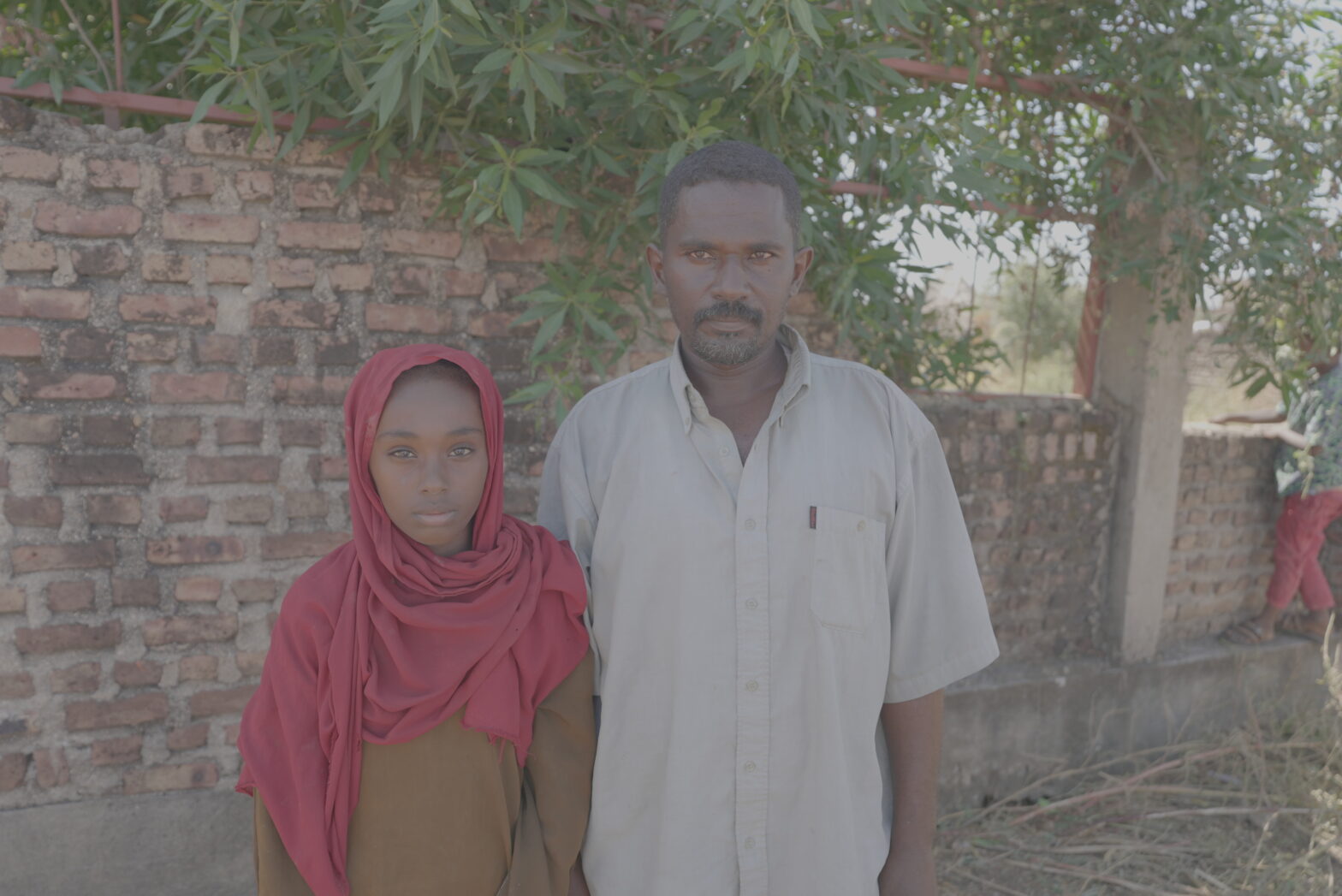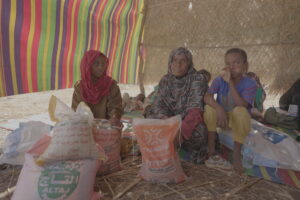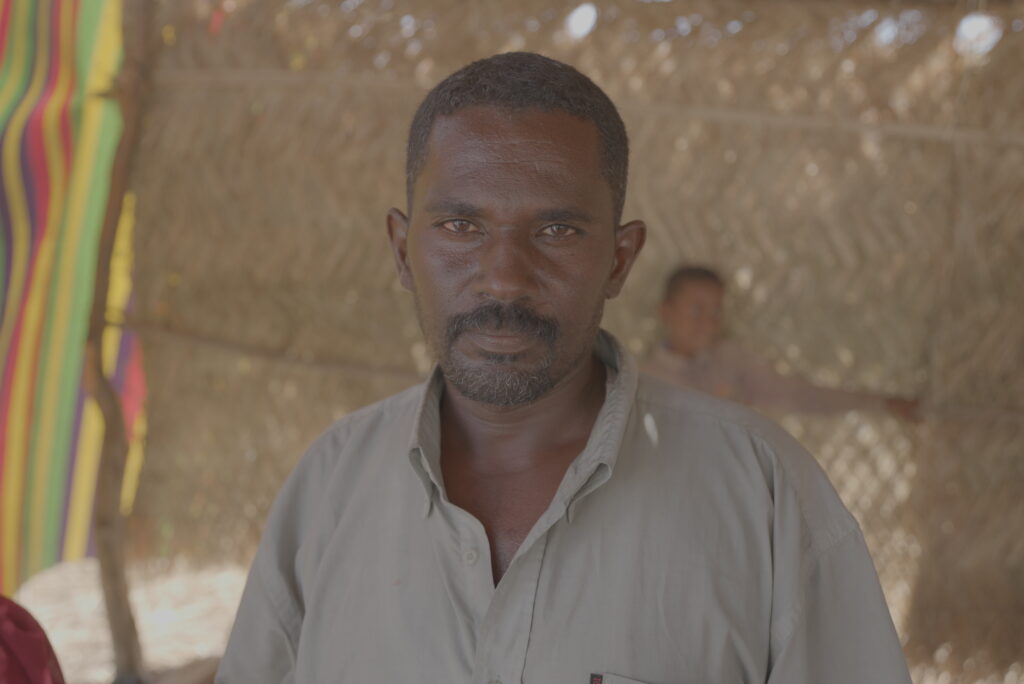
More than 2 years ago, war erupted in Sudan, tearing apart lives, homes, and futures. Since then, millions have been displaced, thousands killed, and countless families left with nothing. Among them is Abu Bakr Bano Mohammed Hamed, a 43-year-old farmer from Sharq Al-Bahar.
His story is one of unimaginable loss, but also of strength, faith, and the urgent need for peace.
They left us with nothing
Abu Bakr, a father of 2, once tended to 15 acres of land, growing chilli, mint, and onions; he was his family’s only source of income. But in an instant, everything was stolen from him.
“They kicked us out of our village, beat us, and told us the land belonged to them now,” he recalls. “They whipped us, stole our cars, took our crops, even the money we had saved. They left us with nothing.”
With no time to gather belongings, Abu Bakr, his wife, and their children joined the exodus of displaced families. The journey to Gedaref [MG1] in eastern Sudan, a region now overwhelmed with displaced families, was a nightmare.
“For 2 days, we had no food, no water, not even tea,” he says. “The elders suffered the most. Some were too weak to move. We had to leave behind the sick because we had no way to carry them.”
The roads were controlled by armed men, forcing them to take dangerous detours. At one point, they passed a village where even the solar-powered water pumps, once a lifeline for thirsty travellers, had been seized by fighters.
“They took everything,” Abu Bakr repeats, as if still trying to make sense of it. “Even the medicine from the hospital. They left nothing.”

A nation shattered
When they finally reached Gedaref, there was no shelter waiting for them. No aid. Just thousands of other displaced families, all equally desperate.
“We slept under trees at first,” Abu Bakr says. “Then, with the help of some community members, we set up a makeshift tent.”
Sanitation is dire. There are not enough latrines. Diseases spread quickly. Food is scarce.
Yet even in these conditions, acts of kindness have kept them going. Many local people opened their homes and shared what little they had, providing newly arrived families with shelter and food. Islamic Relief was among the first organisations to deliver food: lentils, rice, sugar, and cooking oil.
“They even brought us bread from the bakery,” Abu Bakr says. “May Allah bless them.”
But these provisions are a temporary reprieve, not a solution.
“What we need most is safety,” he stresses. “And a way to earn a living again. Right now, we have nothing.”

Wounds of war
The physical deprivation is only part of the suffering. The psychological toll is crushing.
“Honestly, it’s indescribable,” Abu Bakr says when asked about his mental state. “I am so upset, not just for myself, but for all of Sudan. I don’t think we will ever recover from this.”
His children, once carefree, are now withdrawn. His wife struggles with fear and grief. The betrayal cuts deepest, many of the attackers were once neighbours, even friends.
“They ate with us, worked beside us, then turned on us,” he says. “When they came for our village, they were wearing RSF uniforms. They pointed guns at us and said, ‘This land is ours now.’”

A plea for peace
When asked what he would say to the international community, Abu Bakr’s answer is immediate:
“Stand with the people of Sudan. We are innocent. We need peace.”
Years of war have brought unimaginable suffering, yet the world’s attention has faded. Humanitarian aid is insufficient. Diplomatic efforts have stalled. Meanwhile, millions of Sudanese civilians – farmers like Abu Bakr, mothers, children, the elderly – are trapped in a crisis not of their making.
His dream for the future is simple:
“For the war to end, and for everyone to return home safely.”
Islamic Relief has worked in Sudan for 40 years, providing vital humanitarian assistance including hygiene, food and mental health support. Please support our life-saving work by donating to our International Emergency today.



